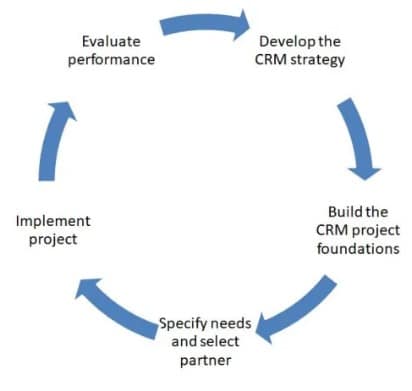Is Your CRM Strategy Failing? Here’s What You Need to Do
Is Your CRM Strategy Failing? Here’s What You Need to Do – Customer Relationship Management (CRM) is a critical aspect of any business strategy, but it’s not always easy to implement. With so many tools, tactics, and technologies available, it’s easy to get lost in the weeds and lose sight of your goals. Unfortunately, a failing CRM strategy can result in lost customers, decreased revenue, and a tarnished reputation.
If you’re struggling to make your CRM strategy work, don’t worry – you’re not alone. In this article, we’ll explore some common reasons why CRM strategies fail and provide practical solutions to help you get back on track.
Why Do CRM Strategies Fail?
- Lack of Clear Objectives
One of the most common reasons why CRM strategies fail is a lack of clear objectives. If you don’t know what you’re trying to achieve, it’s impossible to measure success or failure. Without clear objectives, you may end up wasting time, money, and resources on strategies that don’t align with your business goals.
- Inadequate Data Management
Another common reason why CRM strategies fail is inadequate data management. If you’re not collecting and analyzing data effectively, you’ll have a hard time understanding your customers’ needs and preferences. This can lead to miscommunications, missed opportunities, and lost sales.
- Poor User Adoption
Even if you have a solid CRM strategy in place, it won’t matter if your team doesn’t use it. Poor user adoption is a common problem in many organizations, and it can be challenging to overcome. If your team members don’t see the value in your CRM strategy or find it too complicated to use, they’re unlikely to adopt it fully.
- Ineffective Integration
Your CRM strategy should be integrated with other business systems and processes to be effective. If your CRM system doesn’t integrate well with your other tools and technologies, you may miss critical insights and opportunities. Ineffective integration can also lead to data silos, which can cause confusion and hinder decision-making.
How to Improve Your CRM Strategy
- Define Clear Objectives
The first step in improving your CRM strategy is to define clear objectives. What are you trying to achieve? What metrics will you use to measure success? By setting clear goals, you can ensure that your CRM strategy aligns with your broader business strategy.
- Invest in Data Management
To improve your CRM strategy, you must invest in data management. This means collecting, analyzing, and utilizing data effectively to inform your decision-making. You should also ensure that your data is accurate, up-to-date, and easily accessible.
- Train Your Team
Training is crucial to ensure that your team members understand the value of your CRM strategy and know how to use it effectively. Provide ongoing training and support to help them feel confident and capable of using the system.
- Integrate Your Systems
Integrating your CRM system with other business systems and processes can provide a more holistic view of your customers and help you make more informed decisions. Look for opportunities to integrate your CRM system with other tools and technologies to maximize its effectiveness.
- Conclusion
A failing CRM strategy can have significant consequences for your business, but it’s not a death sentence. By addressing the common reasons why CRM strategies fail and implementing practical solutions, you can improve your CRM strategy and achieve your business goals. Remember to define clear objectives, invest in data management, train your team, and integrate your systems for the best results.
FAQs
1. What is CRM?
CRM stands for Customer Relationship Management. It refers to the strategies and technologies used by businesses to manage interactions with their customers and prospects.
2. What are the benefits of a good CRM strategy?
A good CRM strategy can help businesses improve customer satisfaction, increase revenue, reduce costs, and build long-term customer relationships.
3. How can data management improve CRM?
Data management is essential for effective CRM because it allows businesses to collect, analyze, and utilize data to understand their customers’ needs and preferences. This helps businesses make informed decisions and tailor their interactions with customers to improve their overall experience.
4. What can businesses do to improve user adoption of their CRM strategy?
To improve user adoption, businesses can provide training and support to help their team members understand the value of the CRM strategy and how to use it effectively. It’s also essential to ensure that the CRM system is user-friendly and that team members can easily access the information they need.
5. Is it possible to implement a successful CRM strategy without investing in technology?
While technology is an essential component of many CRM strategies, it’s not the only factor that contributes to success. Businesses can still implement successful CRM strategies without investing in expensive technology by focusing on clear objectives, effective data management, and a well-trained team. However, technology can provide valuable insights and efficiencies that can help businesses maximize the effectiveness of their CRM strategy.
